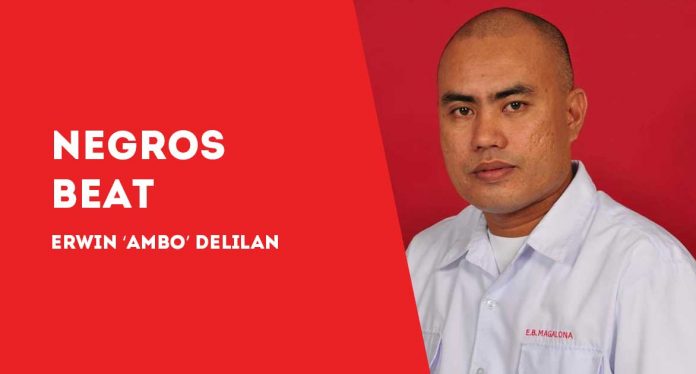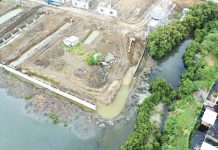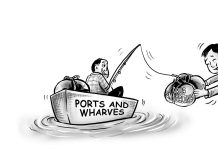
THE NEGROS Occidental provincial government has issued a cease-and-desist order against the ambitious P2-billion palm oil project of Hacienda Asia Plantations, Inc. (HAPI), a subsidiary of the Consunji business conglomerate, in Candoni town.
The primary reason? The project lacks an Environmental Compliance Certificate (ECC) from the Environmental Management Bureau (EMB), an attached agency of the Department of Environment and Natural Resources (DENR).
Taking decisive action, Gov. Eugenio Jose Lacson ordered the project halted as soon as possible. He instructed the Provincial Environment and Management Office (PEMO) to issue the cease-and-desist order, which was formally served on Thursday, June 12.
LOTILLA’S INTERVENTION
In addition to PEMO’s move, the governor wrote a letter on June 9 to incoming Environment Secretary Raphael Lotilla, asking him to step in. Lotilla is set to replace outgoing Secretary Maria Antonia Yulo-Loyzaga on Tuesday, June 17.
Governor Lacson also sought a separate cease-and-desist order from EMB Region 6.
For its part, HAPI has reportedly agreed to comply with the provincial order by suspending its operations across the more than 6,000-hectare area it holds under a 25-year Industrial Forest Management Agreement (IFMA).
THE HEART OF THE ISSUE
But what’s really at the core of this controversy?
After some digging, I discovered there are two key reasons why HAPI has not been granted an ECC, despite having begun earth-moving activities in three barangays — Agboy, Gatuslao, and Payauan — since 2023.
A highly reliable source from EMB Region 6 revealed the crux of the issue: IFMA covers industrial land use, while the area where the plantation is being developed is still classified as agricultural. That legal mismatch is blocking the ECC.
So, what happens now?
It’s up to the DENR to sort out the mess. But the question is: why was this only discovered now?
It’s a bureaucratic failure — plain and simple.
POSSIBLE LIABILITIES
For HAPI, the next step is to halt operations and wait for further instructions.
For Candoni Mayor Rey Ruiz, however, this has become a major headache. Why? Because of command responsibility.
Under Presidential Decree 1586, no individual, partnership, or corporation is allowed to initiate or operate an environmentally critical project or develop within an environmentally sensitive area without securing an ECC.
In short, the mayor is obligated to ensure that all projects under his jurisdiction comply with environmental regulations, including the requirement for an ECC. If a project proceeds without one, the local government could face sanctions, according to the Environmental Compliance Assistance Center.
A PARTIAL VICTORY
The issuance of the cease-and-desist order represents a partial victory for 150 farming families under the Gatuslao Agro-Forestry, Banana, Sugarcane and Coconut Farmers Association (GABASFA), who were gradually displaced after HAPI entered their barangays in 2023.
Carlito Catacata, GABASFA president, expressed gratitude to Governor Lacson for listening to their plea against the corporate “giant.”
Still, Catacata said, “This is only a partial victory. Our real victory will come when HAPI is completely removed from Candoni.”
For balance, I attempted to contact HAPI chief executive officer Alfred Joseph Araneta via call and text since Wednesday — but received no response.
Understandable, perhaps.
SAD BUT BAD
This is sad news — for HAPI, in particular.
Just last month, the company released a statement touting that it had already employed over 500 locals in Candoni through its ongoing operations. A promising start, indeed.
Now, that momentum has come to a grinding halt.
Given the complications surrounding its ECC application, HAPI may find it extremely difficult to move forward.
In many ways, this whole ordeal feels like a “Calvary” in Candoni.
A MODERN-DAY CALVARY
Historically, Calvary is the hill outside Jerusalem where Jesus Christ was crucified. It represents immense suffering but also hope and redemption.
For HAPI, this “Calvary” symbolizes its struggle to legitimize and continue operations amid legal and regulatory setbacks.
For Mayor Ruiz, it is a bureaucratic and political “Calvary,” as he faces a possible fallout of a project that proceeded without the necessary clearances.
And for the displaced farmers and their families, it is a literal Calvary — one of livelihood loss, economic uncertainty, and displacement.
THE STORY ISN’T OVER
This story is far from over. All stakeholders — the project proponent, the local government, environmental regulators, the business sector, and ordinary citizens — must now reimagine this Calvary as an opportunity. A place not only of pain, but of redemption.
Because after all, Calvary is not just where suffering occurred — it’s also where hope was born. And yes, from Calvary, there can be a new beginning./PN







